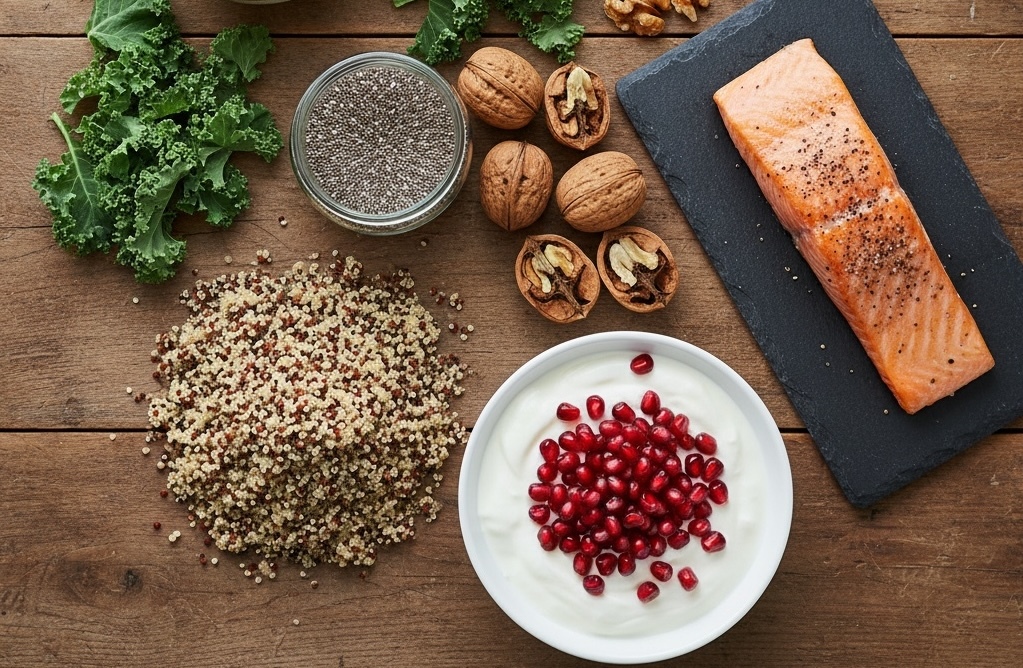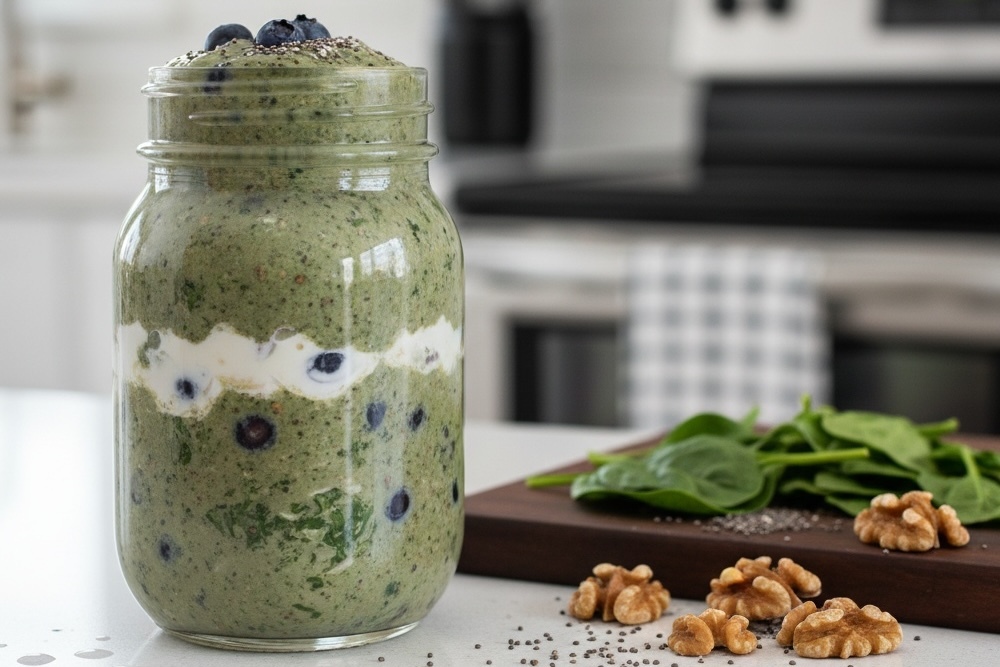The Best Superfoods to Add to Your Diet for Health Improvements
Cameron Lane
2025-09-26
6 min read

The term "superfood" has become a buzzword in health and wellness circles, appearing on everything from smoothie menus to supplement bottles. While no single food can provide miraculous health benefits on its own, certain nutrient-dense foods do offer exceptional concentrations of vitamins, minerals, antioxidants, and other beneficial compounds that can significantly support your overall health when incorporated into a balanced diet. Understanding what makes a food "super" and how to practically include these powerhouse ingredients in your daily meals can help you make informed choices that contribute to better energy levels, improved immune function, and long-term wellness.
What Makes a Food "Super"
Superfoods earn their designation through their exceptional nutrient density relative to their caloric content. These foods typically contain high levels of antioxidants, which help protect cells from damage caused by free radicals, along with essential vitamins, minerals, healthy fats, and fiber. The key distinguishing factor is that superfoods provide multiple nutritional benefits in a single serving, making them efficient additions to any diet. Research consistently shows that diets rich in nutrient-dense foods are associated with reduced risk of chronic diseases including heart disease, diabetes, and certain cancers. However, it's important to understand that superfoods work best as part of an overall healthy eating pattern rather than as isolated miracle cures.
Antioxidant Powerhouses
Blueberries consistently rank among the top superfoods due to their exceptional antioxidant content. These small berries contain anthocyanins, compounds that give them their deep blue color and provide powerful anti-inflammatory benefits. Studies suggest that regular blueberry consumption may support brain health, improve memory, and help protect against age-related cognitive decline. Fresh blueberries can be added to yogurt, oatmeal, or smoothies, while frozen varieties work well in baking and maintain most of their nutritional value. Dark leafy greens like spinach, kale, and Swiss chard deserve special recognition for their impressive nutrient profiles. These vegetables provide folate, iron, calcium, and vitamins A, C, and K, along with lutein and zeaxanthin, antioxidants that support eye health. The versatility of leafy greens makes them easy to incorporate into meals through salads, smoothies, soups, and sautéed side dishes. Pomegranates have gained attention for their high concentration of punicalagins, potent antioxidants that may help reduce inflammation and support heart health. The seeds add a delightful crunch and tart sweetness to salads, yogurt, and grain bowls, while pomegranate juice can be enjoyed in moderation as part of a balanced diet.

Omega-3 Rich Options
Fatty fish such as salmon, mackerel, and sardines provide exceptional amounts of omega-3 fatty acids, particularly EPA and DHA, which are crucial for heart and brain health. These healthy fats help reduce inflammation, support cognitive function, and may help lower the risk of heart disease. Aim to include fatty fish in your diet at least twice per week, prepared through grilling, baking, or broiling to maximize health benefits. For plant-based omega-3 sources, walnuts and chia seeds offer alpha-linolenic acid (ALA), which the body can convert to EPA and DHA in small amounts. Chia seeds are particularly versatile, absorbing liquid to create a gel-like consistency that works well in puddings, smoothies, and as an egg substitute in baking. Walnuts make excellent additions to salads, yogurt, and can be enjoyed as a satisfying snack.
Protein and Fiber Champions
Quinoa stands out as a complete protein source, containing all nine essential amino acids. This ancient grain also provides fiber, iron, and magnesium. Its mild, nutty flavor and fluffy texture make it an excellent substitute for rice or pasta, and it works well in both warm grain bowls and cold salads. Legumes, including lentils, chickpeas, and black beans, offer impressive amounts of plant-based protein along with fiber that supports digestive health and helps maintain stable blood sugar levels. These versatile ingredients can be incorporated into soups, stews, salads, and even blended into dips and spreads. Greek yogurt provides probiotics that support gut health, along with high-quality protein that helps with satiety and muscle maintenance. Choose plain varieties to avoid added sugars, and enhance the flavor with fresh fruits, nuts, or a drizzle of honey.
Practical Integration Strategies
Successfully incorporating superfoods into your diet requires practical strategies that fit your lifestyle and preferences. Start by adding one or two new superfoods to meals you already enjoy rather than completely overhauling your eating patterns. For example, sprinkle chia seeds on your morning cereal or add spinach to your regular pasta sauce.
Batch preparation can make superfood inclusion more convenient. Wash and prepare leafy greens when you bring them home from the store, cook quinoa in larger batches to use throughout the week, and portion nuts and seeds into small containers for easy snacking. Smoothies offer an excellent opportunity to combine multiple superfoods in one delicious drink. A typical superfood smoothie might include spinach or kale, blueberries, Greek yogurt, chia seeds, and a small portion of walnuts, providing antioxidants, protein, healthy fats, and fiber in a single serving.
Making Sustainable Changes
The most important aspect of incorporating superfoods is sustainability. Rather than attempting to include every superfood in your diet immediately, focus on those that appeal to your taste preferences and fit naturally into your existing meal patterns. Gradual changes are more likely to become lasting habits that contribute to long-term health improvements.
Remember that superfoods are most effective when part of an overall balanced diet that includes a variety of fruits, vegetables, whole grains, lean proteins, and healthy fats. No single food can compensate for an otherwise poor diet, but thoughtfully chosen nutrient-dense options can significantly enhance the nutritional quality of your meals. The journey toward better health through nutrition is personal and should be approached with patience and flexibility. By understanding the unique benefits that different superfoods offer and finding creative ways to include them in your daily routine, you can build eating habits that support your health goals while still being enjoyable and sustainable for years to come.



